Publications
Articles, publications, books, tools and multimedia features from the U.S. Institute of Peace provide the latest news, analysis, research findings, practitioner guides and reports, all related to the conflict zones and issues that are at the center of the Institute’s work to prevent and reduce violent conflict.
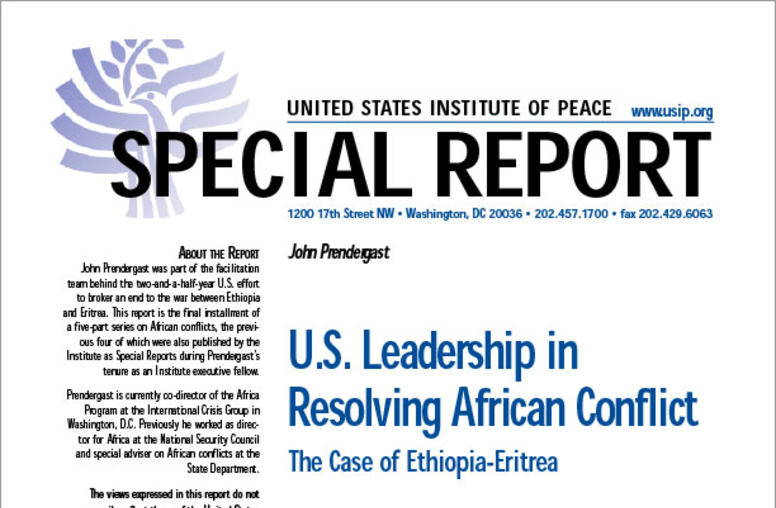
U.S. Leadership in Resolving African Conflict: The Case of Ethiopia-Eritrea
John Prendergast was part of the facilitation team behind the two-and-a-half-year U.S. effort to broker an end to the war between Ethiopia and Eritrea. This report is the final installment of a five-part series on African conflicts, the previous four of which were also published by the Institute as Special Reports during Prendergast's tenure as an Institute executive fellow.
Horn of Africa Web Links
Below are links by topical categories to resources primarily in English providing information generally on conflict in the Horn of Africa. For related web links, see Eritrea Web Links, Ethiopia Web Links, Sudan Conflict Web Links and Regional Resources: Africa. General Resources Government Agencies and International Organizations Maps and Guides Media and News Sources Political Resources These links complement the Special Report: Building for Peace in the Horn of Africa: Di...
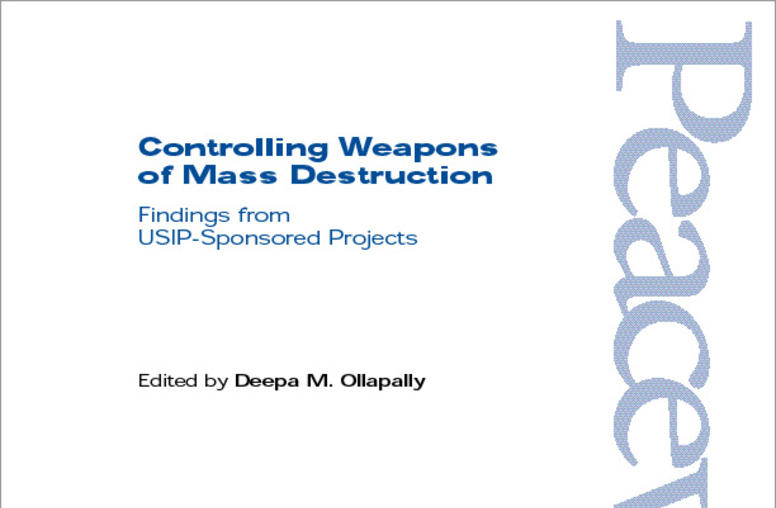
Controlling Weapons of Mass Destruction: Findings from USIP-Sponsored Projects
More than thirty years after the passage of the Nuclear Nonproliferation Treaty (NPT), the record is mixed on the effectiveness of the non-proliferation regime.
Peace Agreements: Macedonia
Framework Agreement (08-13-2001) Posted by USIP Library on: August 14, 2001 Source Name: President of the Republic of Macedonia web site: Press Releases from the Presidential Cabinet Source URL: www.president.gov.mk/eng/info/soopstenija.asp?id=90 Date Downloaded: August 14, 2001
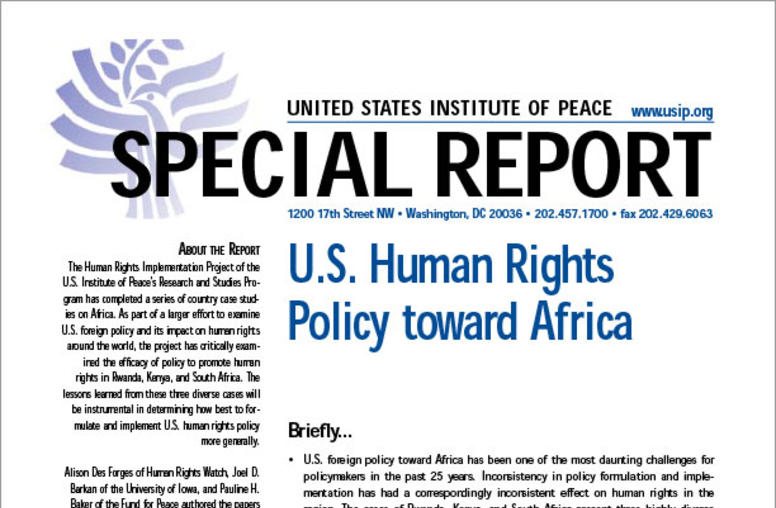
U.S. Human Rights Policy toward Africa
The Human Rights Implementation Project of the U.S. Institute of Peace's Research and Studies Program has completed a series of country case studies on Africa. As part of a larger effort to examine U.S. foreign policy and its impact on human rights around the world, the project has critically examined the efficacy of policy to promote human rights in Rwanda, Kenya, and South Africa. The lessons learned from these three diverse cases will be instrumental in determining how best to formulate an...
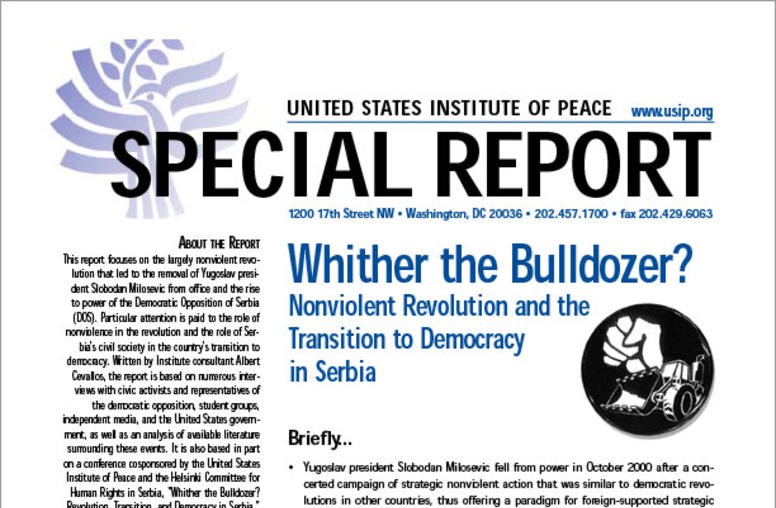
Whither the Bulldozer?: Nonviolent Revolution and the Transition to Democracy in Serbia
Yugoslav president Slobodan Milosevic fell from power in October 2000 after a concerted campaign of strategic nonviolent action that was similar to democratic revolutions in other countries, thus offering a paradigm for foreign-supported strategic nonviolent action against other autocratic regimes.
Truth Commission: Peru 01
Truth Commission: Truth and Reconciliation Commission Duration: 2001 - 2003 Charter: Supreme Decree No. 065-2001-PCM Commissioners: 12 Report: Public report
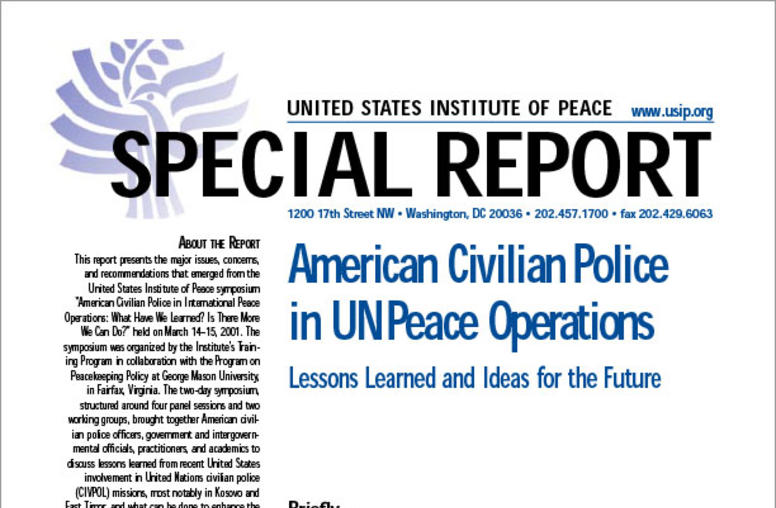
American Civilian Police in UN Peace Operations: Lessons Learned and Ideas for the Future
Summary With the advent of the United Nations missions in Kosovo and East Timor, civilian police (CIVPOL) mandates expanded in scope and scale to assume the full spectrum of executive law enforcement authority, along with the crucial peacebuilding tasks of creating indigenous law enforcement and criminal justice systems based on democratic values and institutions. The Clinton administration's Presidential Decision Directive (PDD) 71 sought to address the "public security gap," creat...
2001 National Winning Essay
Stefanie Nelson Bountiful High School Bountiful, Utah Coordinator: Julia Nelson Third party intervention in civil wars must be re-conceptualized as the collision of two competing philosophies: sovereignty and humanitarianism. On one hand, principles of sovereignty dictate that the people of a state should decide their own course; on the other hand, the bloodshed of innocent human life invokes humanitarianism concerns that motivate action by the international community. Instead of respo...
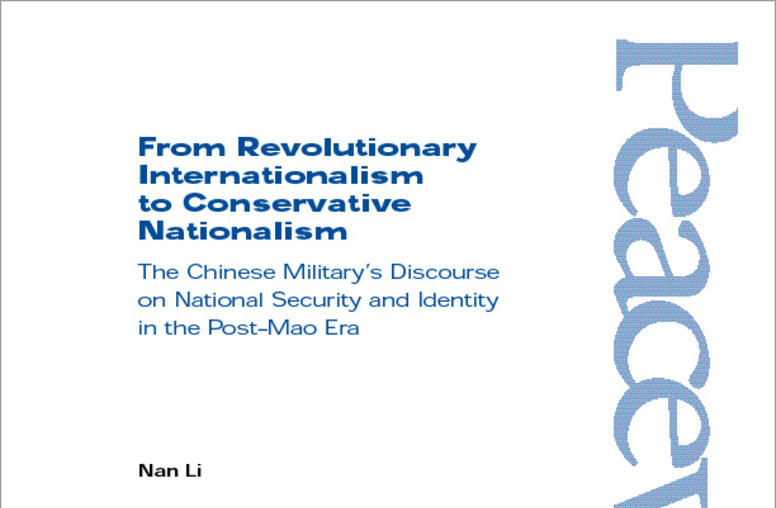
From Revolutionary Internationalism to Conservative Nationalism
Ever since Deng's 1985 "strategic decision" and the corresponding doctrinal change from the country's highest military decision-making body that same year to change Mao Zedong's emphasis on preparing for an early, large-scale, nuclear war, China's military has engaged in a new discourse that is departing from Maoist ideology and moving in a more conservative, nationalist direction. This new military discourse has driven China's foreign policy away from its internationalist and revolutionary f...